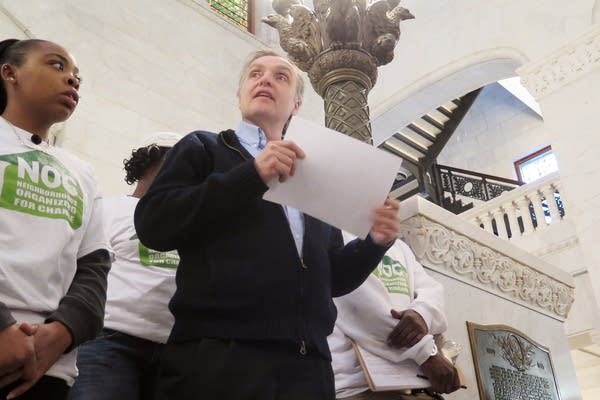Effort to repeal Mpls. spitting, lurking laws moves forward

Minneapolis City Council Member Cam Gordon is one of the sponsors of a resolution to eliminate laws that ban spitting and lurking. He spoke at a rally on the steps of the City Hall Rotunda on Friday, April 3, 2015.
Brandt Williams | MPR News
Go Deeper.
Create an account or log in to save stories.
Like this?
Thanks for liking this story! We have added it to a list of your favorite stories.


